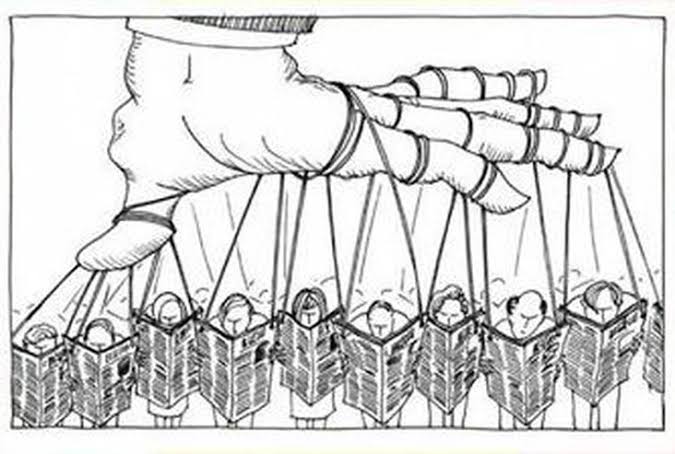The Impact of Separation of Powers in Democracy
Explore the essential role of separation of powers in democracy. Learn why the separation of powers is crucial for democratic governance

Explain the Concept of Separation of Powers and Its Role in Democratic Governance
The concept of separation of powers is a cornerstone of democratic governance, serving as a vital framework for the organization and functioning of political systems worldwide. In this era of constant political developments, with headlines dominated by US political news, state and politics dynamics, world politics news, international political news, upcoming political events, and political campaign strategies, understanding the principles of separation of powers is crucial. This concept not only shapes the governance of nations but also plays a pivotal role in maintaining the balance of power and upholding the democratic values that underpin modern societies.
The Origins of Separation of Powers
To comprehend the concept of separation of powers, we must delve into its historical origins. The idea can be traced back to ancient Greece, where philosophers like Aristotle and Polybius discussed the benefits of dividing political authority. However, it was the French philosopher Montesquieu who popularized the concept in his 1748 work "The Spirit of the Laws." Montesquieu argued that to prevent tyranny and safeguard liberty, governmental power should be divided into distinct branches, each with separate functions and responsibilities.
The Three Branches of Government
In modern democratic systems, the concept of separation of powers is typically applied through the division of government into three branches: the legislative, executive, and judicial branches.
Legislative Branch: The legislative branch is responsible for making laws. It is usually represented by a parliament or congress, where elected representatives draft, debate, and vote on proposed legislation. This branch plays a vital role in shaping the direction of a nation's policies and laws, reflecting the will of the people through their elected representatives.
Executive Branch: The executive branch is responsible for implementing and enforcing the laws created by the legislative branch. It is typically headed by a president, prime minister, or a similar executive authority. This branch carries out the day-to-day operations of the government, including foreign policy, law enforcement, and administration.
Judicial Branch: The judicial branch is responsible for interpreting and applying the laws created by the legislative branch. It consists of courts and judges who ensure that laws are applied fairly and justly. The judiciary also has the power of judicial review, allowing it to determine the constitutionality of laws and government actions.
The Role of Separation of Powers in Democratic Governance
Now that we have outlined the three branches of government, let's explore how the concept of separation of powers plays a pivotal role in democratic governance:
Checks and Balances: One of the fundamental aspects of separation of powers is the system of checks and balances. Each branch of government has the ability to monitor and limit the powers of the other branches. For example, the legislative branch can pass laws, but the executive branch can veto them. However, the legislative branch can override the veto with a supermajority vote. This system prevents any single branch from accumulating too much power and ensures that decisions are made collectively and with careful consideration.
Protection of Individual Rights: Separation of powers is essential for protecting individual rights and liberties. The judicial branch acts as a safeguard against government overreach by ensuring that laws do not violate the constitution or infringe upon citizens' rights. This role is especially crucial in democracies where the rule of law and protection of individual freedoms are paramount.
Accountability and Transparency: In a democratic system, accountability is key. Each branch of government is held accountable for its actions, and this accountability promotes transparency. The executive branch is accountable to the legislative branch through mechanisms such as hearings and investigations, while the judiciary is accountable through its decisions and interpretations of the law. This ensures that government actions are subject to scrutiny and public oversight.
Stability and Consensus-Building: Separation of powers contributes to political stability by preventing abrupt and unilateral changes in policy. To pass legislation or enact significant policy changes, cooperation and consensus between the legislative and executive branches are often required. This encourages a deliberative approach to governance and discourages hasty or impulsive decision-making.
Prevention of Tyranny: Perhaps the most significant role of separation of powers is the prevention of tyranny. By dividing power among multiple branches of government, the system makes it difficult for any one individual or group to seize absolute control. This protection against authoritarianism is a central feature of democratic governance.
US Political News and Separation of Powers
US political news is a constant source of headlines and discussions around the world. The United States, often referred to as the "land of the free," has a government that exemplifies the principles of separation of powers. The US political system divides power among the executive branch (headed by the President), the legislative branch (consisting of Congress), and the judicial branch (with the Supreme Court at its helm).
The US Congress, composed of the Senate and the House of Representatives, is responsible for passing federal laws. The President, as the head of the executive branch, enforces these laws, while the Supreme Court, as part of the judicial branch, interprets and reviews their constitutionality. This system of checks and balances ensures that no single branch of government becomes too powerful.
US political news often covers the interactions and conflicts between these branches. For example, when the President vetoes a bill passed by Congress, it sparks debates and negotiations to find common ground. The Supreme Court's decisions on key issues, such as civil rights, abortion, and the balance of federal and state powers, frequently make headlines and impact the direction of the country.
Additionally, the US political system's separation of powers is integral to its federalism, as power is also divided between the federal government and individual states. This division of authority allows states to have a significant say in matters like education, healthcare, and law enforcement, leading to diverse policies and regulations across the nation.
State and Politics: A Microcosm of Separation of Powers
While national politics often take center stage, state and politics dynamics offer a microcosm of the separation of powers principle. In federal systems like the United States, Canada, and India, states or provinces have their own governments with their own legislative, executive, and judicial branches. These state governments operate within the framework set by the national constitution and laws.
State legislatures pass laws specific to their regions, governors execute these laws, and state courts interpret them. This decentralization of power allows states to address local issues and priorities effectively. For instance, states can enact environmental regulations, education policies, and healthcare programs tailored to their unique needs.
Furthermore, state and politics interactions can provide valuable insights into how the separation of powers operates in practice. State governors, like their national counterparts, often engage in battles with state legislatures over budget allocations, policy initiatives, and emergency powers. These dynamics mirror the broader principles of checks and balances and the need for consensus-building within a democratic framework.
World Politics News and International Political Dynamics
In the realm of world politics news and international political news, the concept of separation of powers takes on a global dimension. While separation of powers is often associated with national governments, it also plays a role in international relations and the governance of international organizations.
International Organizations: Entities like the United Nations (UN), the European Union (EU), and the World Trade Organization (WTO) have structures that reflect the separation of powers. For example, the UN General Assembly functions as a legislative body where member states debate and pass resolutions. The UN Security Council, on the other hand, holds executive powers related to international security and peacekeeping. Additionally, the International Court of Justice serves as a judicial branch by settling disputes between countries.
Bilateral Relations: Separation of powers also influences bilateral relations between countries. When negotiating treaties or trade agreements, national governments must consider their own legislative processes, where the legislature plays a role in ratifying such agreements. This ensures that international commitments are subject to domestic checks and balances.
International Law: International law, which governs interactions between countries, is shaped by principles akin to the separation of powers. Treaties, customary international law, and the decisions of international courts collectively guide the behavior of nations on the global stage.
Understanding the separation of powers within international contexts is crucial for comprehending diplomatic relations, international agreements, and the balance of power between nations.
Upcoming Political Events and Their Impact
Upcoming political events often hold the potential to reshape the landscape of governance and politics. Whether it's an election, a constitutional referendum, or a summit between world leaders, these events are intrinsically tied to the principles of separation of powers.
Elections: Elections are a fundamental aspect of democratic governance. They allow citizens to choose their representatives in the legislative and executive branches. Upcoming political events like elections can lead to shifts in power, with new leaders taking office and potentially altering the direction of government policies.
Constitutional Changes: Some upcoming political events involve proposed changes to a nation's constitution. This might include amendments that affect the separation of powers, such as altering the balance of authority between branches or revising the powers of elected officials.
Summits and Diplomacy: International events like summits and diplomatic negotiations are also influenced by the separation of powers. Before leaders engage in diplomacy, they often consult with their legislative bodies and other branches of government to ensure that agreements align with national interests and constitutional frameworks.
Policy Debates: Upcoming political events often bring policy debates to the forefront. These debates involve interactions between the legislative and executive branches, as lawmakers propose and deliberate on policy changes. The outcome of these debates can impact various aspects of governance, from healthcare and taxation to foreign policy and environmental regulations.
Political Campaign Strategies and the Separation of Powers
Effective political campaign strategies are intricately linked to the principles of separation of powers. Campaigns seek to secure the support of the electorate and, ultimately, gain control of the legislative and executive branches. Here's how campaign strategies relate to the concept of separation of powers:
Legislative Agenda: Political candidates often campaign on a legislative agenda, outlining the policies and laws they intend to promote if elected. This legislative platform is directly tied to the separation of powers, as it outlines the candidate's vision for the role of the legislative branch in governance.
Executive Leadership: Candidates for executive positions, such as the presidency or governorship, campaign on their ability to lead the executive branch effectively. They articulate their plans for implementing laws, managing government agencies, and executing the powers vested in the executive branch.
Checks and Balances: Campaigns highlight the importance of checks and balances by emphasizing the need for a strong opposition. In a democracy, the minority party in the legislature or the defeated candidate in an executive election serves as a check on the party or individual in power. This system ensures that no single party or leader can govern without accountability.
Judicial Appointments: Political campaigns also impact the judicial branch indirectly through the appointment of judges. Elected officials often have the authority to nominate and confirm judges, influencing the composition of the judiciary and, subsequently, its role in interpreting and applying the law.
In the ever-evolving world of governance and politics, the concept of separation of powers remains a bedrock principle of democratic systems. From US political news to international political dynamics, and from state and politics interactions to upcoming political events and campaign strategies, the separation of powers is a pervasive and essential element.
This concept ensures that no single branch of government wields unchecked authority, protecting individual rights, promoting accountability, and preventing tyranny. As we continue to navigate the complex and dynamic landscape of democratic governance, a deep understanding of the separation of powers is indispensable for informed citizenship and effective participation in the political process. It is the linchpin that keeps the wheels of democracy turning, allowing governments to function within the bounds of the law and the will of the people.
What's Your Reaction?





















